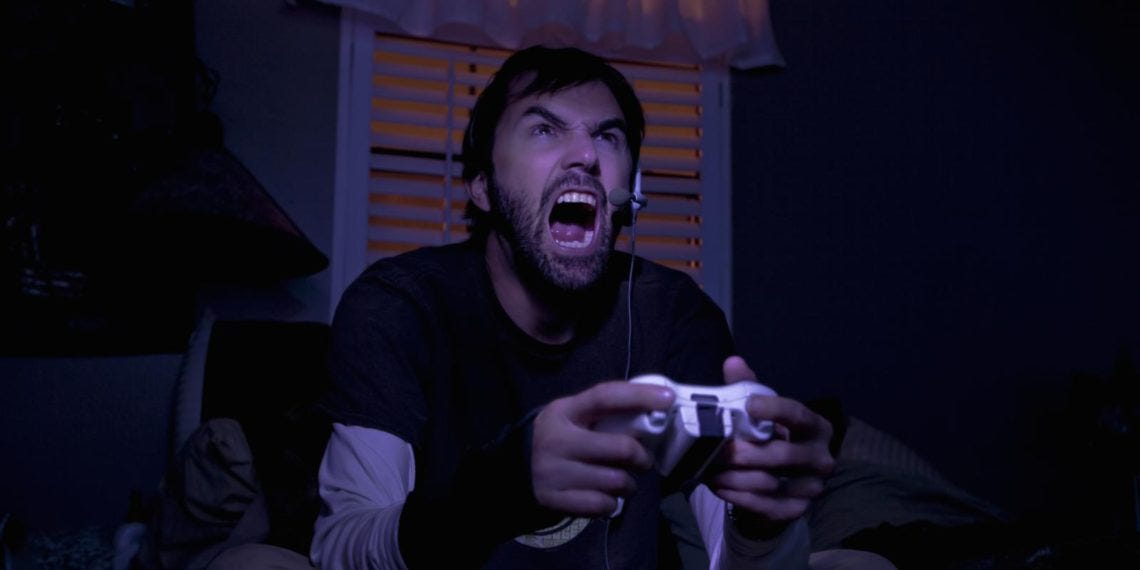Online gaming is an exciting and immersive form of entertainment enjoyed by millions worldwide. While gaming offers fun, social interaction, and skill development, excessive gameplay can lead to addiction, affecting personal, academic, and professional life. Preventing online gaming addiction requires awareness, self-discipline, and practical strategies. By establishing healthy habits, gamers can enjoy their favorite games without compromising their well-being.
Recognize the Signs of Gaming Addiction
The first step in preventing online gaming addiction is understanding the signs. Common indicators include neglecting responsibilities, losing track of time while gaming, withdrawing from social interactions, and feeling irritable or anxious when unable to play. Recognizing these early signs allows players to take proactive measures before gaming negatively impacts their life. Awareness is crucial for maintaining control over gaming habits.
Set Time Limits
Establishing clear time limits for gaming sessions is one of the most effective ways to prevent addiction. Decide in advance how long you will play each day or week and stick to it. Use timers or reminders to enforce these limits. Balancing gaming with other activities, such as work, study, exercise, and social interaction, ensures that gaming remains a positive part of life rather than taking over daily routines.
Create a Structured Schedule
A structured daily schedule helps maintain a healthy balance between gaming and other responsibilities. Allocate specific times for gaming while prioritizing work, school, exercise, and social activities. Planning your day reduces the risk of excessive gameplay and promotes a sense of discipline. A consistent schedule also reinforces self-control and prevents gaming from interfering with important obligations.
Prioritize Real-Life Relationships
Maintaining real-life relationships is essential for preventing gaming addiction. Spend time with family, friends, and peers outside the virtual world. Engage in activities that do not involve screens, such as sports, hobbies, or social gatherings. Strong personal connections provide emotional support and fulfillment, reducing the urge to spend excessive time gaming.
Take Regular Breaks
Taking breaks during gaming sessions helps prevent both addiction and physical strain. Stand up, stretch, or go for a short walk every hour. Breaks not only protect physical health, such as posture and eye strain, but also create opportunities to reflect on gaming habits. Regular pauses make it easier to maintain self-control and prevent prolonged, immersive play from becoming compulsive.
Focus on Variety
Diversifying leisure activities helps reduce the risk of gaming addiction. Engage in different forms of entertainment, such as reading, sports, creative projects, or music. When gaming is one of many hobbies rather than the sole focus, it becomes easier to maintain balance. A variety of activities promotes mental stimulation, social engagement, and overall well-being.
Monitor Emotional Triggers
Gaming addiction can sometimes be linked to emotional triggers, such as stress, boredom, or loneliness. Being aware of these triggers helps players manage their gaming habits effectively. Instead of turning to games as a coping mechanism, explore healthier alternatives, such as exercise, meditation, or talking to friends. Addressing underlying emotions reduces the risk of developing a dependency on gaming for comfort or escape.
Avoid High-Risk Games
Certain games are designed to be highly engaging and may encourage prolonged play. Multiplayer, competitive, and reward-based games often provide constant incentives to keep playing. While enjoyable, these games can increase the risk of addiction. Setting limits, avoiding marathon sessions, and prioritizing games with natural stopping points helps maintain a healthier gaming routine.Visit Online ทางเข้าตรง harley168 For More Details.
Seek Support When Needed
If gaming begins to interfere with daily life or relationships, seeking support is important. Friends, family, or professional counselors can provide guidance and accountability. Online support groups or communities also offer advice and strategies for maintaining control. Seeking help early prevents problems from escalating and promotes long-term gaming balance.
Practice Mindful Gaming
Mindful gaming involves being aware of your behavior, emotions, and time spent playing. Reflect on why you are playing, how it affects your mood, and whether it aligns with your priorities. Mindful gaming encourages self-regulation, prevents compulsive behavior, and ensures that gaming remains a positive, enjoyable activity rather than a source of stress or addiction.
Final Thoughts
Preventing online gaming addiction requires awareness, self-discipline, and intentional habits. By recognizing the signs, setting time limits, maintaining real-life relationships, taking breaks, and practicing mindful gaming, players can enjoy online games safely and responsibly. Diversifying activities, monitoring emotional triggers, and seeking support when needed further strengthen control over gaming habits. With these strategies, online gaming can remain a fun, social, and rewarding experience without negatively impacting life, health, or personal growth.
